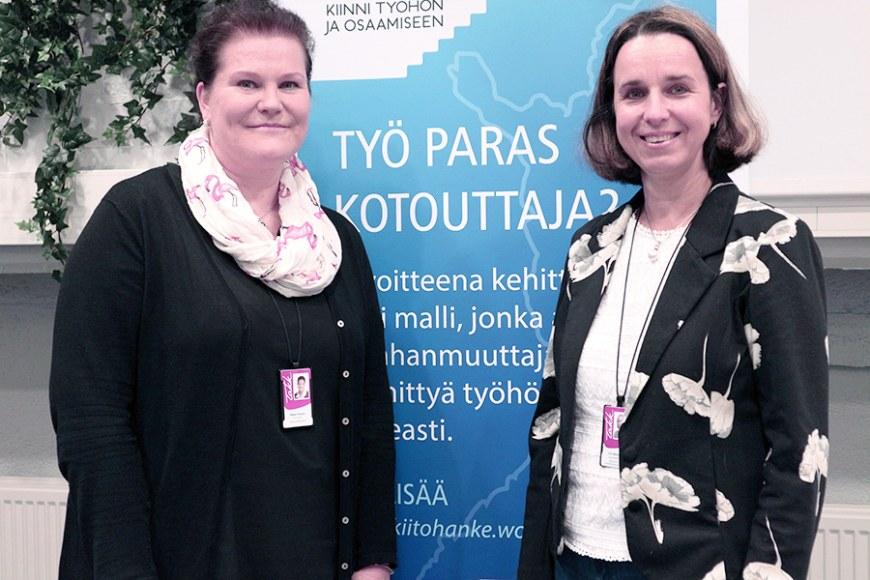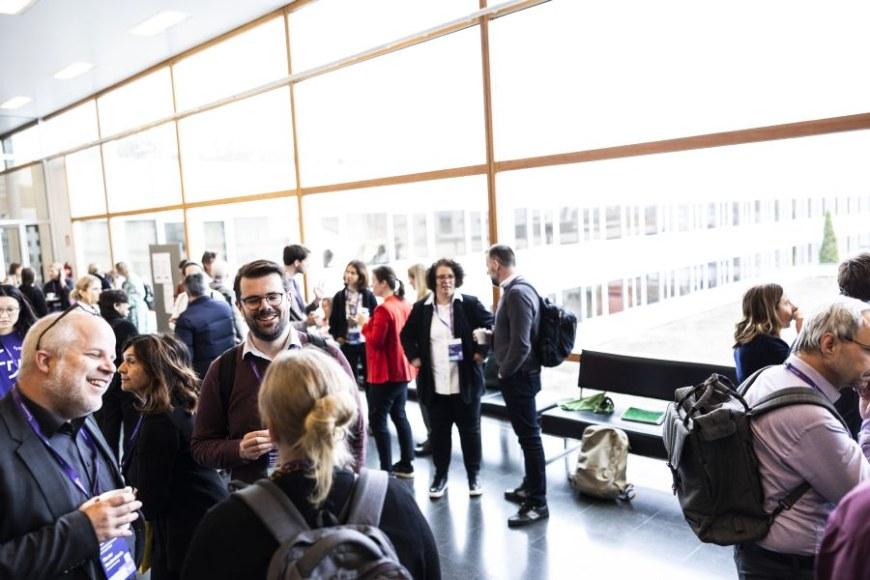Employment support for immigrants begins with competence identification

Lack of Finnish language skills is often considered as an obstacle to finding a job, especially as regards understanding of work-related instructions and occupational safety matters. Conceptions of professional competence levels may also differ. Finland invests in integration and employment of immigrants but personal attitudes also play a role.
Jenny Maharjan-Pant moved to Finland in 2015. Now she works in her dream job as an element designer at A-Insinöörit in Tampere. Her career in the construction field started in her home country Nepal where she completed a bachelor’s degree in architecture. Her journey continued to Germany where she graduated as a Master of Construction Engineering in 2014 and then to Japan where she studied at the University of Tokyo before coming to Finland.
Maharjan-Pant emphasises that personal initiative is of benefit in finding a job.
“I met my present-day superior in a TalentMeet recruitment event. I introduced myself, gave my CV and told him about my education and work experience as a site engineer at Pohjola Rakennus Oy.”
At the same time Maharjan-Pant heard about the KIITO project which promotes immigrants’ employment.
“I told them about the possible job at A-Insinöörit. We agreed on an interview with the employer, which facilitated my employment,” Maharjan-Pant summarises her job search process.
Language skills and motivation behind success
Integration stands for all measures specifically directed to immigrants. According to Maharjan-Pant, Finland takes care of integration better than many other countries.
“It was clear for me from the beginning that if I want to work in Finland, I have to study Finnish and continuously develop my language skills and professional skills,” Maharjan-Pant tells.
The KIITO integration model developed to support immigrants’ employment includes mapping of professional competence, integration training and/or occupational integration. The final objective is employment. The first two phases are implemented as labour market training and the third phase in an employment relationship.
Maharjan-Pant’s case is an example of how KIITO promotes employment. Her case also demonstrates that everyone’s path is individual. Most often immigrants do not have a ready contact to a company but KIITO searches for the company.
“Immigrants are a heterogenerous group and thus services have to be individual and flexible,” state Project Manager Ene Härkönen from Tampere Adult Education Centre, Senior Lecturer Hanne Mäki-Hakola from Tampere University of Applied Sciences’ School of Professional Teacher Education and Coordinator Taija Tuominen from Silta-Valmennusyhdistys.
Cooperation skills required from all
The theoretical background of the KIITO path is based on Vance R. Peavy’s sociodynamic counselling, which stands for time, attention and respect for the counselled person.
“Respect builds the basis for all activities,” the KIITO project participants sum up.
Building of joint understanding is not always straightforward. Assessment and documentation of professional competence are needed in order to be in agreement with the competence requirements.
“Immigrants may for example have a higher opinion of their competence and it may be difficult for them to accept that competence requirements are very different in Finland and in their home country,” Härkönen tells.
Mäki-Hakola gives an imaginary example of a person who says that he can build houses. The environment where the competence was acquired has to be taken into account. In this example, the ways of building and related quality requirements may differ greatly around the world. However, Mäki-Hakola wants to emphasise that assessment is always based on the individual.
In addition to counselling immigrants to learn the Finnish ways of working, the company partners must have real recruitment needs.
“Doing together and intensive counselling of immigrants take time but it should not be considered as a burden at workplaces. All immigrants build their professional identity on their existing competence and this should be supported and strengthened,” says Mäki-Hakola.
Good operations models to wider use
The KIITO project led to establishment of support services for companies, such as Finnish language lessons in companies or educational institutions, professional instruction, workplace advisor’s support and multiculturalism education for the work community. One incentive for companies is a pay subsidy period during which all the above-mentioned support forms are free of charge for the employer.
“These are financial carrots which companies need,” Härkönen summarises.
Härkönen hopes that the good practices developed in the project will be introduced more widely in Finland.
“The wheel does not need to be reinvented as the basic model already exist.”
The KIITO project, which will end in August 2019, has impacted on the Tampere Region. The project supported 107 immigrants. Their competence was mapped, 22 of them continued to integration training and 50 participated in occupational integration. A total of 20 persons found employment through the project.
The project started in September 2016 and continues until the end of August 2019. It is financed by the European Social Fund, City of Tampere and Town of Mänttä-Vilppula. The project is implemented by Tampere Adult Education Centre, Silta Valmennusyhdistys and TAMK.
Further information
Project Manager Ene Härkönen, ene.harkonen [at] takk.fi (ene[dot]harkonen[at]takk[dot]fi)
Senior Lecturer Hanne Mäki-Hakola, hanne.maki-hakola [at] tuni.fi (hanne[dot]maki-hakola[at]tuni[dot]fi)
Text and photo: Arja Lundan





